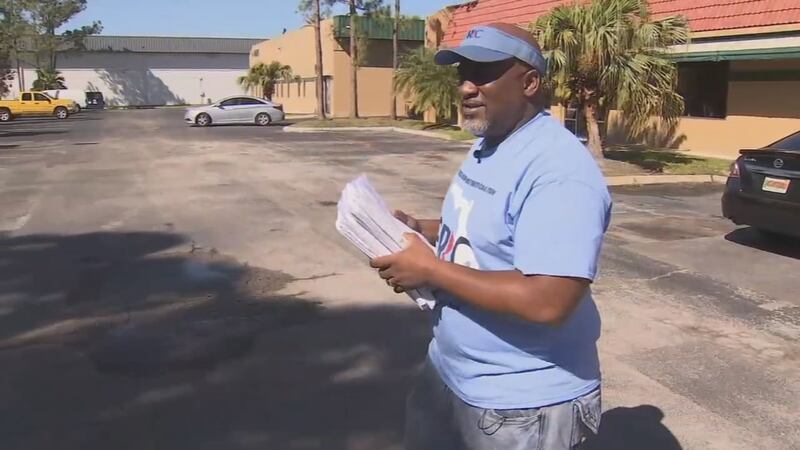TALLAHASSEE, Fla. — He was released from prison in 2005, earned a law degree, and then set about earning back his right to vote.
Along the way, central Florida resident Desmond Meade started a movement that he thought ended in 2018 when almost 65% of Florida voted to amend the state constitution, allowing for the automatic restoration of voting rights for nonviolent felons after their release.
READ: House panel looks into harmful extremist groups on social media, company accountability
It has not worked out that way.
In 2019, the Florida Legislature passed a bill requiring felons to pay all court costs and fees before getting their right to vote back. Because Florida saddles defendants with the costs of their own prosecution, many felons leave prison owing thousands of dollars for their trial.
“The whole purpose of Amendment-4 was that politicians would not move an issue, they would not resolve an issue that has been evading Florida for 150-years and so citizens took the matter up into their own hands and delivered,” said Meade. “People came together, we had people from all walks of life, all political persuasions, and we have elevated it above partisan politics.”
Of the 1.4 million Felons in Florida who were supposed to get their rights to vote back many have not. While Meade does have his right to vote restored, he has been working since to help other felons pay off their fines and fees.
Today I appeared before the Fl Gov for a pardon .. didn’t leave with one https://t.co/zOwRlUh517
— Desmond Meade (@desmondmeade) September 23, 2020
Last week, former New York City Mayor Michael Bloomberg announced an effort to raise money to pay off some of what’s owed. The $20 million dollar fundraising plan is designed to help more than 30,000 felons pay off fines and fees and register to vote.
READ: Trump promotes health care ‘vision’ but gaps remain
But now the state wants an investigation.
Florida Attorney General Ashely Moody on Wednesday sent a letter to the FDLE and FBI asking for each to look into possible violations of elections laws.
The FDLE says it has received the request, while the FBI does not comment on ongoing investigations.
For Meade, the AG letter came just hours after he was denied a full pardon from the Florida Clemency Board. The board, which is comprised of the Florida Cabinet, raised questions about charges Meade faced in the early 90s including domestic violence and a court marital.
Meade, who has not had any legal issues in more than 15-years says the arbitrary nature of the hearing only shows how broken the system has become.
READ: Obama to join Kamala Harris for 2 Democratic fundraisers
“The reality is that when someone applies for clemency, the clemency board conducts a thorough investigation of that individual they get deep into that person’s personal life and they examine all records that are out there and if there is someone or people who they need to speak to they can they even inform victims that they can appear at the hearing,” says Meade.
Meade says he’ll continue his work to help felons register and that he will be back in Tallahassee in December after casting his first vote in a general election in more than 30-years.
Cox Media Group








